Ashwani Bhat
Multi-Task Learning Framework for Extracting Emotion Cause Span and Entailment in Conversations
Nov 07, 2022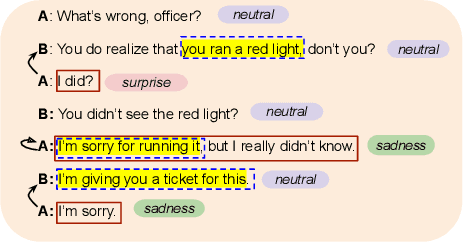
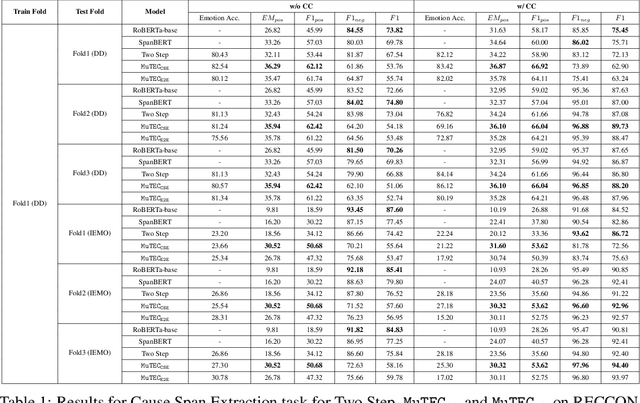
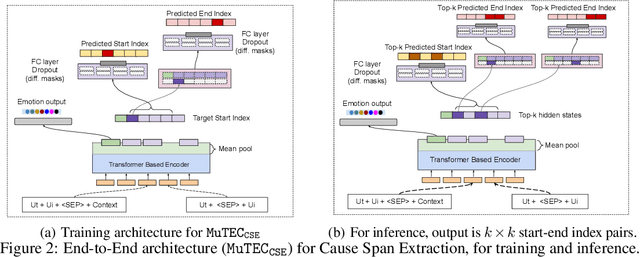
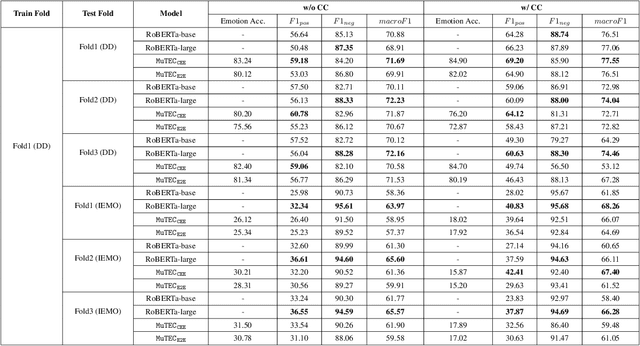
Abstract:Predicting emotions expressed in text is a well-studied problem in the NLP community. Recently there has been active research in extracting the cause of an emotion expressed in text. Most of the previous work has done causal emotion entailment in documents. In this work, we propose neural models to extract emotion cause span and entailment in conversations. For learning such models, we use RECCON dataset, which is annotated with cause spans at the utterance level. In particular, we propose MuTEC, an end-to-end Multi-Task learning framework for extracting emotions, emotion cause, and entailment in conversations. This is in contrast to existing baseline models that use ground truth emotions to extract the cause. MuTEC performs better than the baselines for most of the data folds provided in the dataset.
COGMEN: COntextualized GNN based Multimodal Emotion recognitioN
May 05, 2022


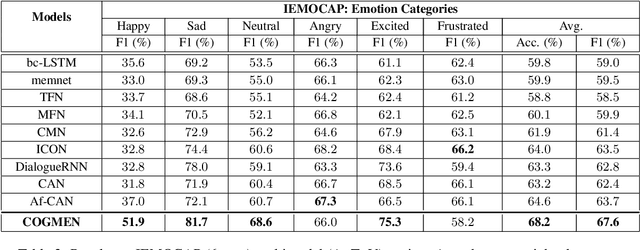
Abstract:Emotions are an inherent part of human interactions, and consequently, it is imperative to develop AI systems that understand and recognize human emotions. During a conversation involving various people, a person's emotions are influenced by the other speaker's utterances and their own emotional state over the utterances. In this paper, we propose COntextualized Graph Neural Network based Multimodal Emotion recognitioN (COGMEN) system that leverages local information (i.e., inter/intra dependency between speakers) and global information (context). The proposed model uses Graph Neural Network (GNN) based architecture to model the complex dependencies (local and global information) in a conversation. Our model gives state-of-the-art (SOTA) results on IEMOCAP and MOSEI datasets, and detailed ablation experiments show the importance of modeling information at both levels.
Adv-OLM: Generating Textual Adversaries via OLM
Jan 21, 2021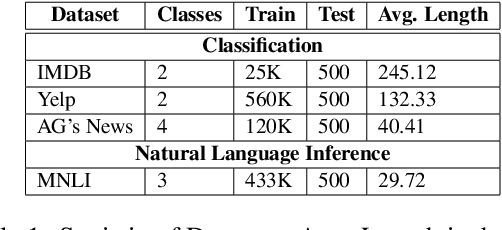
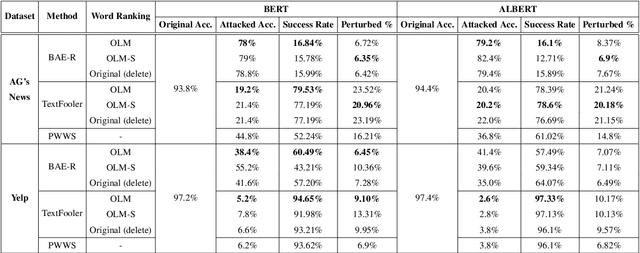
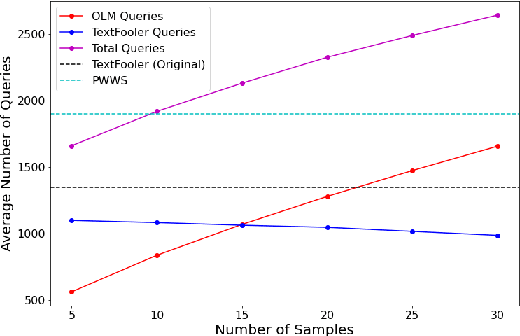

Abstract:Deep learning models are susceptible to adversarial examples that have imperceptible perturbations in the original input, resulting in adversarial attacks against these models. Analysis of these attacks on the state of the art transformers in NLP can help improve the robustness of these models against such adversarial inputs. In this paper, we present Adv-OLM, a black-box attack method that adapts the idea of Occlusion and Language Models (OLM) to the current state of the art attack methods. OLM is used to rank words of a sentence, which are later substituted using word replacement strategies. We experimentally show that our approach outperforms other attack methods for several text classification tasks.
 Add to Chrome
Add to Chrome Add to Firefox
Add to Firefox Add to Edge
Add to Edge